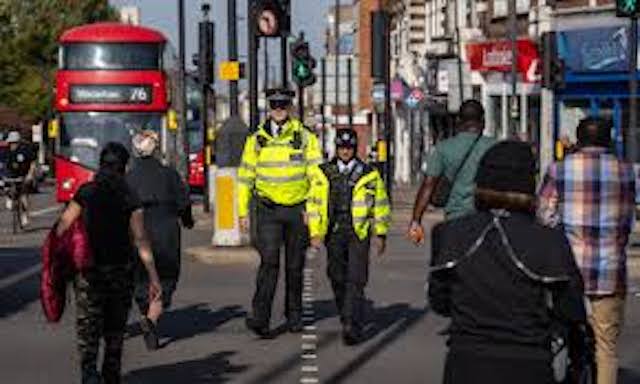A series of antisemitic incidents targeting Jewish premises in north London has prompted a police investigation, with authorities believing a single suspect is responsible for the disturbing acts. The Metropolitan Police have released CCTV footage and an image of the man they are seeking, appealing to the public for assistance in identifying him. Seven separate incidents have been reported over recent weeks, involving four synagogues, a private residence, a Jewish school, and a car. The synagogues and residence, all located in Golders Green, were defaced with an unidentified substance, while in the other two instances, a liquid was thrown towards the school and over the car. The police are treating these offences as religiously-motivated criminal damage.
Detective Superintendent Katie Harber, leading the investigation, has condemned the acts as “revolting and appalling,” emphasizing the distress caused to the targeted community. The police force has reassured the public that such behavior will not be tolerated and are actively working to identify and apprehend the perpetrator. This investigation comes amidst a broader backdrop of rising antisemitism in the UK, with recent events further exacerbating tensions and concerns within the Jewish community. The police are urging anyone with information about the suspect or the incidents to come forward, highlighting the importance of community cooperation in addressing hate crimes and ensuring the safety and security of all citizens.
The targeted attacks on synagogues and other Jewish properties underscore a concerning trend of antisemitic incidents in the UK. While the specific motivations behind these recent attacks remain under investigation, the targeting of religious institutions and private property belonging to members of the Jewish community clearly points to a religiously-motivated bias. The smearing of substances on synagogues and the throwing of liquids towards a school and car not only demonstrates a blatant disrespect for religious spaces but also creates a climate of fear and insecurity for the Jewish community. These acts of vandalism are not isolated incidents but rather part of a larger pattern of antisemitic behavior that has been observed in recent years.
The UK has witnessed a surge in antisemitic incidents, particularly following the October 2023 Hamas attack on Israel and the subsequent conflict in Gaza. This surge reflects a broader trend of increased antisemitism both in the UK and globally. The Community Security Trust (CST), a charity that monitors antisemitism in Britain, reported a record high of 2,019 antisemitic incidents in the first half of 2024. While the number of incidents recorded in the first half of 2025 (1,521) was slightly lower, it still represents the second-highest figure on record since the CST began monitoring antisemitism in 1984. This data highlights the persistent nature of antisemitism and the need for continued vigilance and action to combat this form of hatred.
The rise in antisemitic incidents following the Israel-Hamas conflict underscores the complex interplay between international events and domestic prejudice. The conflict often serves as a catalyst for the expression of pre-existing antisemitic sentiments within society. These sentiments can manifest in various forms, ranging from verbal abuse and online harassment to physical attacks and vandalism of property. The targeting of Jewish institutions and individuals in the aftermath of such conflicts reflects a misplaced attribution of collective responsibility, where entire communities are held accountable for the actions of a particular group or state. This phenomenon highlights the importance of distinguishing between legitimate criticism of Israeli government policies and antisemitism, which targets Jews as a whole.
The ongoing investigation into the north London incidents represents a crucial step towards holding the perpetrator accountable and sending a clear message that antisemitic acts will not be tolerated. However, addressing the broader issue of antisemitism requires a multi-faceted approach that goes beyond law enforcement. This includes educational initiatives to combat prejudice and misinformation, interfaith dialogue to promote understanding and respect between different religious communities, and government policies that address the root causes of intolerance and discrimination. It also requires individuals to speak out against antisemitism whenever and wherever they encounter it. By working together, communities, organizations, and governments can create a more inclusive and tolerant society where all individuals feel safe and respected, regardless of their religious beliefs.


